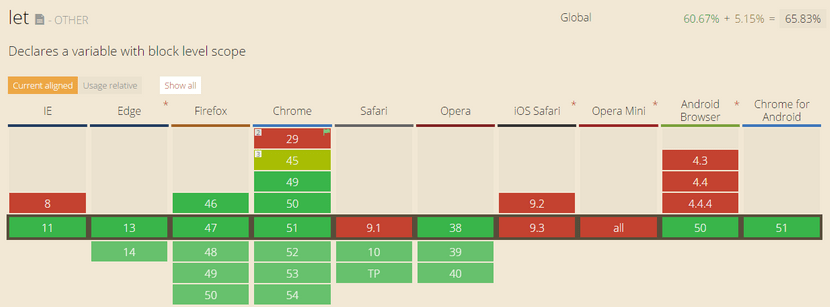Javascript var vs let
You’ve seen let and var used and for the most part they appear to be interchangeable but what exactly is the difference between let and var? The simplest explanation of the difference between let and var is that let is bound by block scope while var is bound by function scope.
Consider the following function scoped example. In this scenario let and var act the same since they share the same scope.
new (function() {var a = 123;let b = 456;console.log(a); //123console.log(b); //456})();
The following example highlights the scoping difference between let and var. Unlike C# and other languages, when you declare a var in for loop scope that variable continues to exist in following lines. Using let ensures that the scope of the variable is limited purely to the for loop logic block. Attempting to reference a let variable outside of it’s declarative block leads to a runtime exception
new (function() {for (var x = 0; x < 10; x++) {//do work}console.log(x); // 10for (let y = 0; y < 10; y++) {//do work}console.log(y); //Uncaught ReferenceError: y is not defined})();
The following scenario involves bounding variables in blocks. This has the same result as the looping example.
new (function() {{var x = 5;}console.log(x); //5{let y = 6;}console.log(y); //Uncaught ReferenceError: y is not defined})();
As we can see, let can be a great asset for encapsulating code. As always, before using ES6 features make sure that your environment supports them. Can I Use Let?
